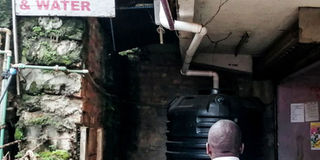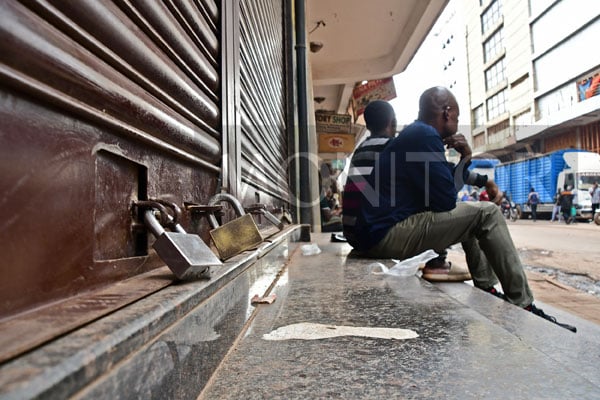Masaka authorities order landlords to scrap toilet fee

Sanitation. One of the public toilets at Muto Complex in Masaka Town that charges Shs300. PHOTO BY MALIK FAHAD JJINGO
What you need to know:
- Ms Samson Kintu , a business owner in Nyendo, a Masaka town suburb, said they will comply with the guidelines if they are given ample time to set up the required lavatories.
- Masaka mayor Godfrey Kayemba Afaayo asked the landlords to embrace the arrangement because it aims at improving sanitation standards in the area.
Authorities in Masaka Municipality have ordered owners of business premises in the town to stop collecting toilet fees from tenants.
The landlords charge Shs200 to Shs300 per session. This means if one is to visit the toilet five times a day, it would cost between Shs1,000 and Shs1500, which some shop keepers say disrupts their budget.
This has forced some to use buckets inside their shops to answer nature’s call. The urine is mixed with water to disguise it and then poured out on the streets every evening, something that explains the smell of urine in some streets such as Elgin and Broadway Road.
Although the landlords claim the toilet levy was introduced to keep the lavatory facilities clean, Masaka Municipal Town Clerk John Behangana insists their action contravenes the Public Health Act.
“The Public Health Act mandates all buildings to provide toilet facilities free of charge. We have already met the owners of buildings and we expect them to comply as our town prepares to become a city,” he said in an interview on Wednesday.
Masaka is among the seven municipalities that government has lined up to become a city effective July 1. Others are Arua, Mbale, Gulu, Jinja, Fort Portal, and Mbarara.
Mr Behangana said his office is closely working with health inspectors in the three divisions that make up Masaka Municipality to enforce the Public Health Act
“Sanitation is a major factor in everything. If we get clean toilets in all places and our people are well-sensitised, we can avoid almost 80 per cent of diseases,” he said.
Mr Behangane warned that landlords who will not comply risk having their premises closed.
The town clerk said they are also in the process of rehabilitating all the public toilets in the town and build more.
Currently, the town has about nine public toilets some of which were erected before independence, which are in a sorry state.
Ms Samson Kintu , a business owner in Nyendo, a Masaka town suburb, said they will comply with the guidelines if they are given ample time to set up the required lavatories.
“There are those [landlords] with few toilets on their buildings, those ones should be given time to increase the number. But we should also be allowed to make some small increment on rent fees like Shs10,000 per month to enable us buy toilet papers, pay the water bills and the cleaners,” he said.
Masaka mayor Godfrey Kayemba Afaayo asked the landlords to embrace the arrangement because it aims at improving sanitation standards in the area.
“We are seriously facing health-related challenges ranging from littering to use of buckets and polythene bags as toilets, these have to be addressed,” he said.
Mr Musa Mabeeri, the municipal health inspector, lauded the municipal authorities for coming out to reinforce efforts to have a clean town.
“I just pray that we make this campaign sustainable if we are to register positive results. I am happy that at least 40 per cent of landlords have so far improved sanitation at their premises and what is remaining is to convince them to scrap toilet fees,” he said.
A similar arrangement (of making toilets on commercial building free ) was first introduced in Kampala two years ago and President Museveni also supported it but city landlords protested the move, saying tenants have to continue paying for the toilet services.
The President made the proposal after tenants complained during a tour of the inner city in 2018 that business had become costly due to multiple tax obligations backed by additional payments.




